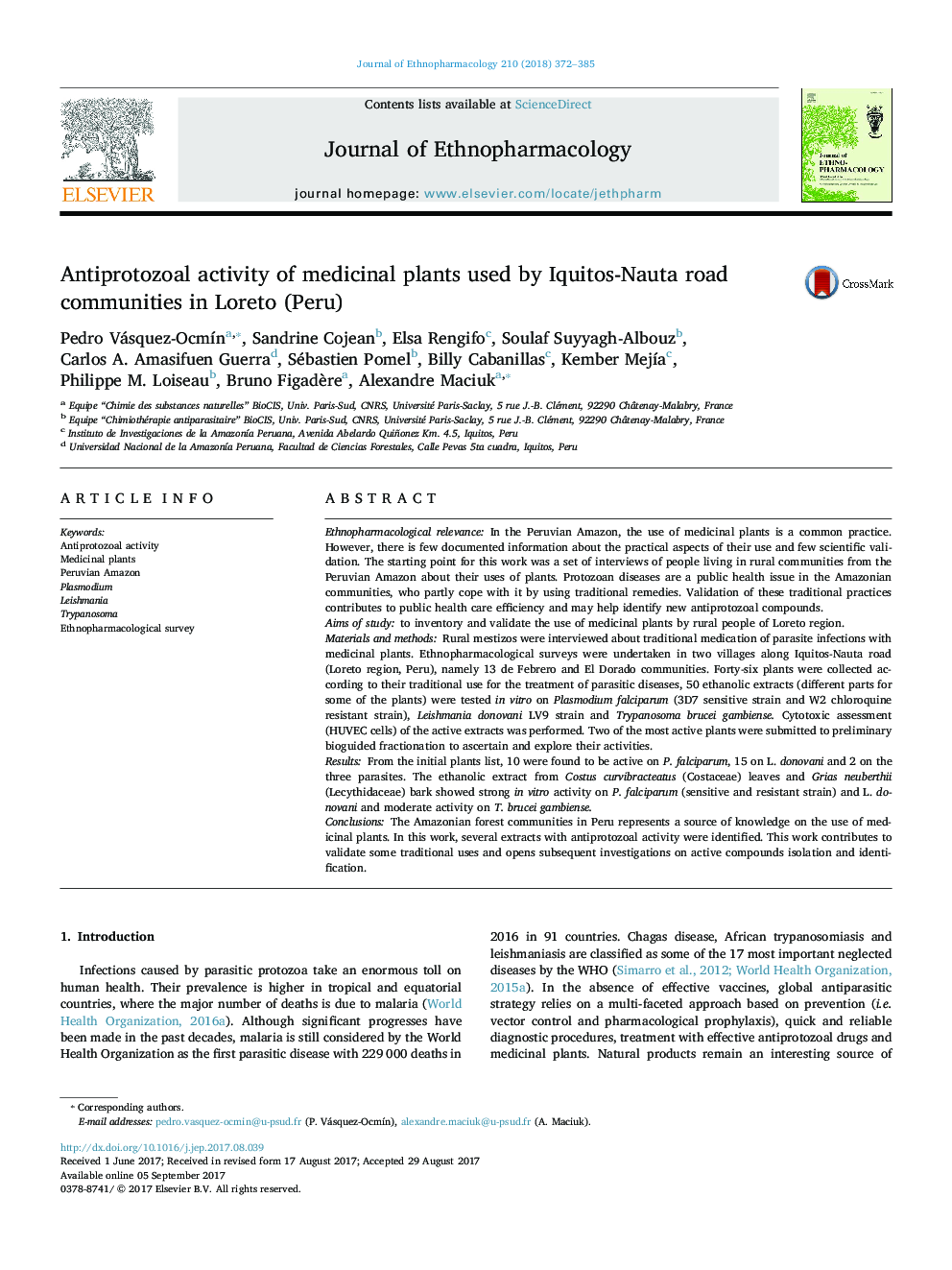| کد مقاله | کد نشریه | سال انتشار | مقاله انگلیسی | نسخه تمام متن |
|---|---|---|---|---|
| 5555951 | 1560352 | 2018 | 14 صفحه PDF | دانلود رایگان |
Ethnopharmacological relevanceIn the Peruvian Amazon, the use of medicinal plants is a common practice. However, there is few documented information about the practical aspects of their use and few scientific validation. The starting point for this work was a set of interviews of people living in rural communities from the Peruvian Amazon about their uses of plants. Protozoan diseases are a public health issue in the Amazonian communities, who partly cope with it by using traditional remedies. Validation of these traditional practices contributes to public health care efficiency and may help identify new antiprotozoal compounds.Aims of studyto inventory and validate the use of medicinal plants by rural people of Loreto region.Materials and methodsRural mestizos were interviewed about traditional medication of parasite infections with medicinal plants. Ethnopharmacological surveys were undertaken in two villages along Iquitos-Nauta road (Loreto region, Peru), namely 13 de Febrero and El Dorado communities. Forty-six plants were collected according to their traditional use for the treatment of parasitic diseases, 50 ethanolic extracts (different parts for some of the plants) were tested in vitro on Plasmodium falciparum (3D7 sensitive strain and W2 chloroquine resistant strain), Leishmania donovani LV9 strain and Trypanosoma brucei gambiense. Cytotoxic assessment (HUVEC cells) of the active extracts was performed. Two of the most active plants were submitted to preliminary bioguided fractionation to ascertain and explore their activities.ResultsFrom the initial plants list, 10 were found to be active on P. falciparum, 15 on L. donovani and 2 on the three parasites. The ethanolic extract from Costus curvibracteatus (Costaceae) leaves and Grias neuberthii (Lecythidaceae) bark showed strong in vitro activity on P. falciparum (sensitive and resistant strain) and L. donovani and moderate activity on T. brucei gambiense.ConclusionsThe Amazonian forest communities in Peru represents a source of knowledge on the use of medicinal plants. In this work, several extracts with antiprotozoal activity were identified. This work contributes to validate some traditional uses and opens subsequent investigations on active compounds isolation and identification.
312
Journal: Journal of Ethnopharmacology - Volume 210, 10 January 2018, Pages 372-385
